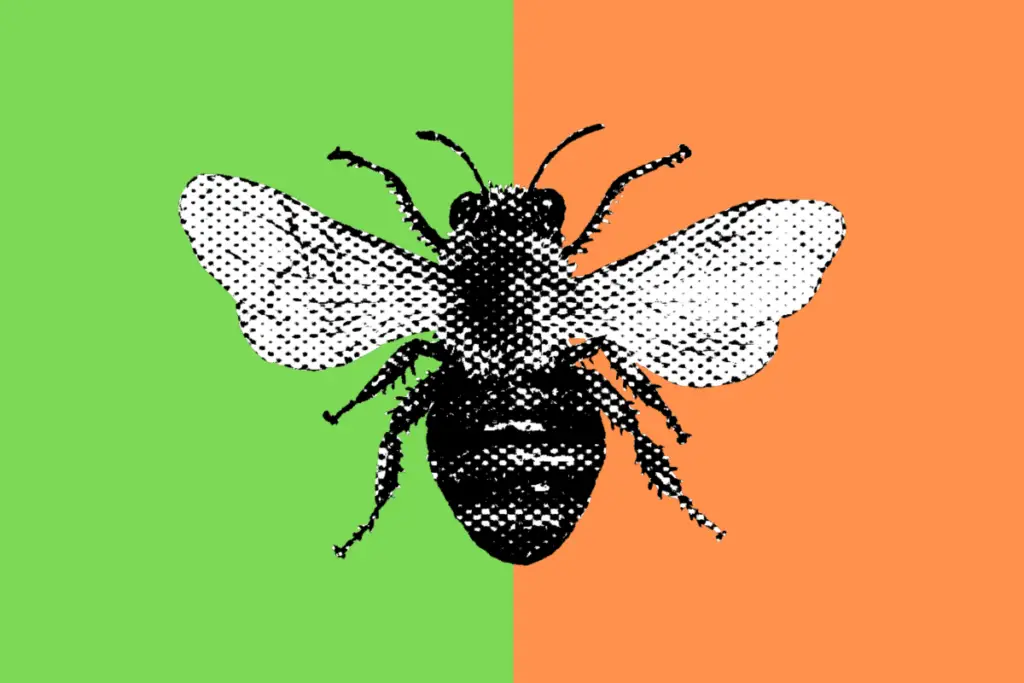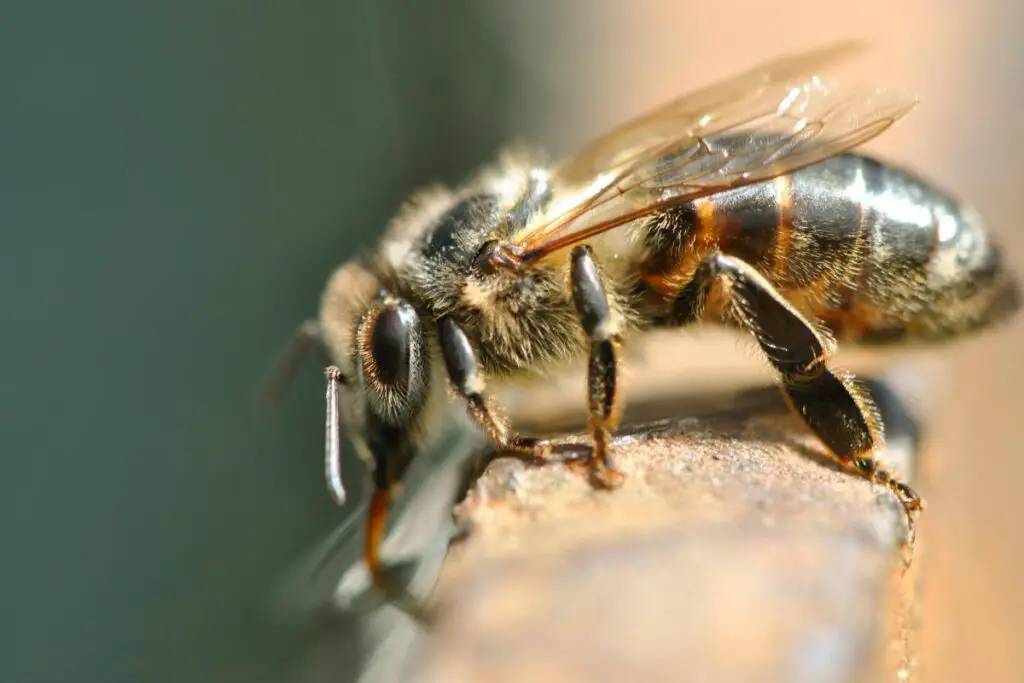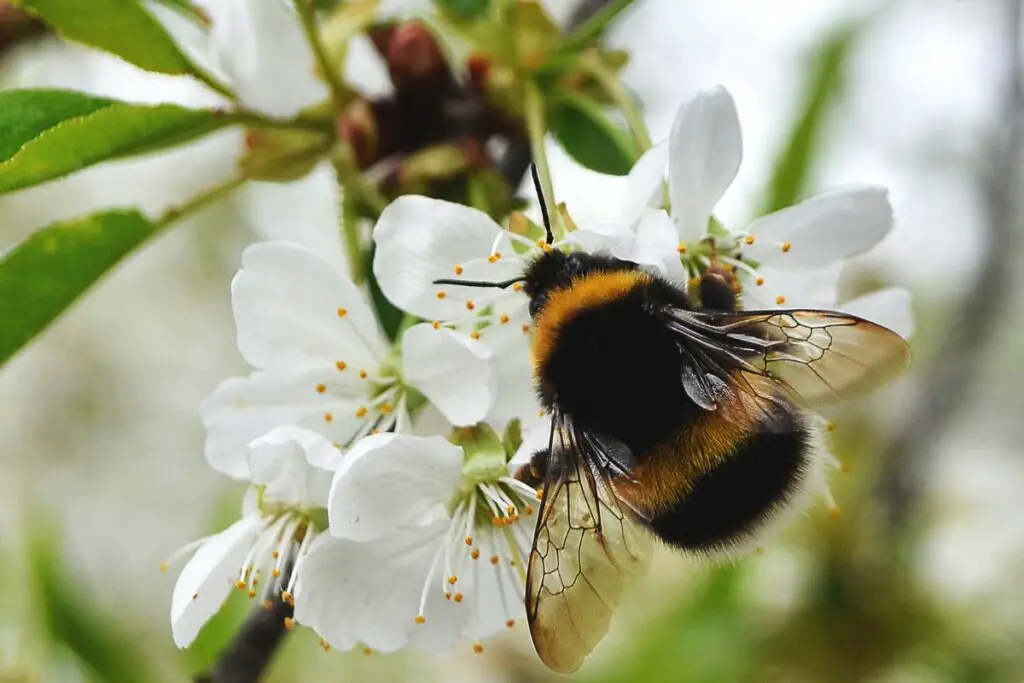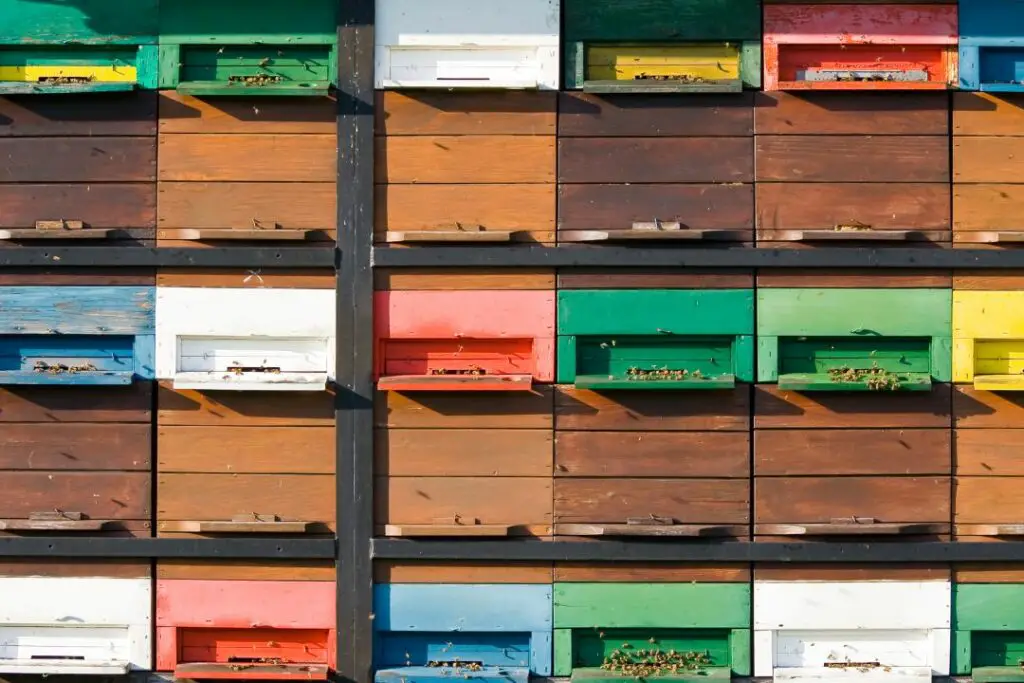Last updated on November 22nd, 2023 at 04:50 pm
Bees are fascinating little creatures! They’re essential for making plants grow by moving pollen from one flower to another (pollination).
But what about the meaning of bees, and what do bees symbolise?
- Community and Teamwork
- Diligence and Hard Work
- Royalty and Leadership
- Immortality and Rebirth
- Fertility and Abundance
- Wisdom and Enlightenment
- Environmental Health Indicator
- Personal Growth Symbol
These industrious little insects have made their mark on many cultures throughout history. Let’s take a closer look at the spiritual meaning of bees.
Cultural & Historical Perspectives On Bee Symbolism
Bees have been working hard for thousands of years, and they’ve made their mark from Egyptian mythology to medieval monasteries.
Ancient Civilizations
In ancient Egypt, bees were viewed as being connected to royalty. They were linked to kingship and the gods. Egyptians believed bees were born from the tears of the sun god Ra. Pretty cool, right?
In Ancient Greece, bees were revered symbols of life, wealth, and industry. They were associated with deities like Artemis and Demeter, representing fertility and agriculture.
It was seen as a bridge between the natural world and the divine, embodying hard work, dedication, and community.
The famous Oracle of Delphi priestesses were sometimes called “Delphic bees.” This title reflects divine messengers, akin to bees’ role in sustaining life through pollination.
Religion
Bees and honey have long been intertwined with Christian symbolism, representing aspects like immortality and resurrection. This symbolism is rooted in the bee’s ability to continuously produce honey, seen as a symbol of the eternal rewards and prosperity of the Christian afterlife.
In Christian art, bees are depicted around the Christ child or saints, symbolizing purity and diligence. Moreover, a bee colony’s orderly and cooperative nature is often used as a metaphor for the Christian community, symbolising a well-organized, industrious society working together under the guidance of God.
Medieval monks often kept beehives to produce honey and beeswax as a spiritual exercise. They drew parallels between the structure and behaviour of the bee colony and the Christian monastic community, seeing in it a model of humility, selflessness, and hard work directed towards the glory of God.
Hinduism and Buddhism have their own special meanings. They’re sometimes seen as symbols of the soul and spiritual growth, and the buzzing of bees is even used in meditation practices!
Folklore tales and literature
In Celtic mythology and folklore, bees were considered to have a secret wisdom, the keepers of ancient knowledge. Their ability to find their way home over long distances also lent them an air of mystery and intelligence.
Aesop’s Fables “The Bee and Jupiter” offers a unique perspective on the character and symbolism of bees. In this tale, a bee, proud of the honey it had made, flew to Mount Olympus to present it as a gift to Jupiter, the king of the gods.
Impressed by the honey’s quality, he offered to grant the bee whatever it wished. The bee asked for a sting to protect its honey from thieves.
Jupiter granted the bee’s request but added a consequence: if the bee used its sting, it would die. This story is often interpreted as a moral lesson about the consequences of seeking revenge or the dangers of possessing a harmful power.
The bee’s desire to defend its hard work is understandable, but the story underscores the idea that violence or vengeance often comes with a steep price.
Another superstition that gripped our ancestors was bees entering their homes. They believed a bee entering and leaving your house would bring you good luck. But if it died in your house, the dead bee would bring bad luck to anyone living there.
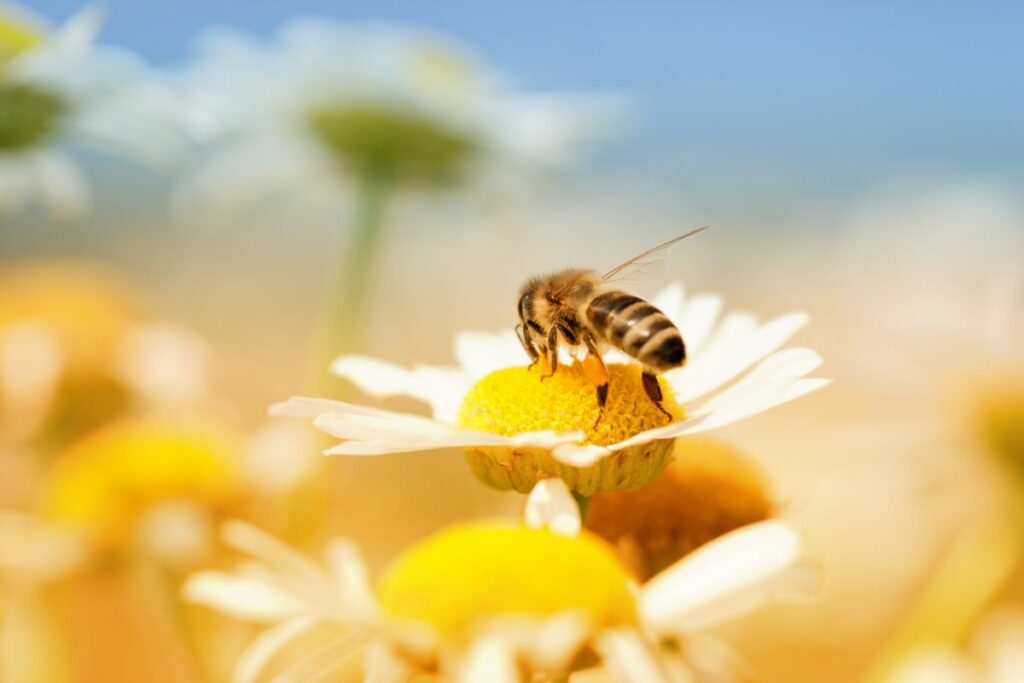
Bees Around The World
Bees hold rich and varied symbolic meanings across different cultures worldwide, reflecting their importance in nature and human life.
Let’s look at what the honey bee means all over the world.
- Ancient Egypt: In Ancient Egypt, bees were seen as symbols of royalty and power. The bee was associated with the Pharaoh, considered the “Beekeeper” of Upper and Lower Egypt. Hieroglyphs depicting bees signify rulership and authority.
- Greek and Roman Mythologies: Bees were often associated with deities linked to nature and fertility in these cultures. The Greek god Apollo was sometimes called “Nomios,” the pastoral or meadow god associated with bees. Bees were also connected to the goddess Demeter, symbolizing renewal and regeneration.
- Hinduism: In Hindu mythology, bees are associated with Vishnu, Krishna, and Kama (the god of love). The bee on Krishna’s forehead symbolises the soul’s longing for spiritual awakening and enlightenment.
- Slavic Cultures: In Slavic mythology, bees were seen as symbols of purity and chastity. They were sometimes thought to be the souls of the dead, linking them to immortality.
- Native American Cultures: In Native American cultures, bees can symbolize community and abundance and were even seen as fierce little warriors always at the ready to defend their hive.
- Islamic Traditions: In Islam, bees are regarded with honour, as the Quran has a chapter titled “The Bee.” Bees are seen as symbols of hard work, producing life-sustaining honey, also considered a healing remedy.
- Contemporary Western Culture: Today, bees often symbolize environmental awareness and conservation, reflecting growing concern over declining bee populations and their essential role in pollinating crops.
This global diversity in bee symbolism underscores their universal significance across human cultures, seen in their depiction in art, literature, religion, and mythology. Their role in various ecosystems as pollinators and honey producers further enhances their symbolic and practical importance.
Bees in Visual Art
In historical art, bees often buzz with symbolism! They’ve been a part of art for centuries, in ancient Egyptian hieroglyphs and Greek pottery.
In many ancient cultures, bees were linked to mythology, gods and goddesses. Zeus was portrayed as being fed honey as a baby to help him gain strength before taking his throne on Olympus as the king of the gods.
The Hive
Jump to modern times, and artists are still fascinated by bees! One fascinating example of bees in modern art is “The Hive” by British artist Wolfgang Buttress.
This installation was created for the UK Pavilion at the 2015 Milan Expo and is now located at Kew Gardens in London. It’s a massive, immersive structure standing 17 meters tall, designed to resemble a giant beehive.
It’s made from thousands of pieces of aluminium and steel, creating a lattice effect that’s both futuristic and organic. And it’s not just a static sculpture – it’s interactive.
There are lights and sounds that respond to the real-time activity of a bee colony. These effects are triggered by vibrations from a real beehive at Kew Gardens, creating a unique and ever-changing sensory experience.

The Symbolism Of The Manchester Bee
This symbolises the industrial history and community spirit of Manchester, England. This emblem, featuring a worker bee, is deeply rooted in the city’s past, particularly during the Industrial Revolution.
It was a hub for textile production, known as the world’s first industrial city, and its factories were often called “beehives” because they were bustling with activity, much like a real beehive.
The worker bee, specifically, symbolizes hard work and cooperation, mirroring the qualities of the city’s inhabitants during the Industrial Revolution.
These characteristics are seen as foundational to the city’s growth and success. Manchester embraced this symbolism during the 19th century, and has become integral to its identity.
In recent years, the bee has also come to represent unity and resilience, especially following the 2017 Manchester Arena bombing. In the wake of the tragedy, the bee became a symbol of solidarity and the strong community spirit of Manchester’s residents as they came together to support each other.

